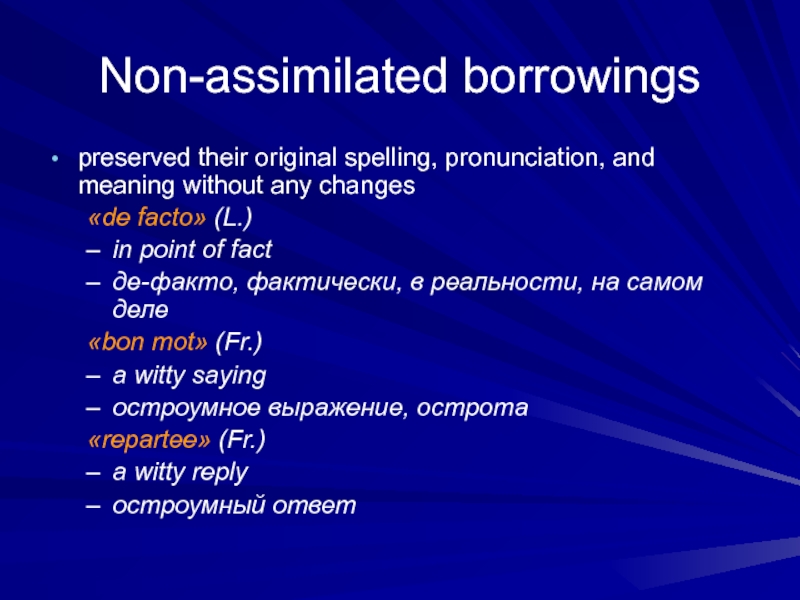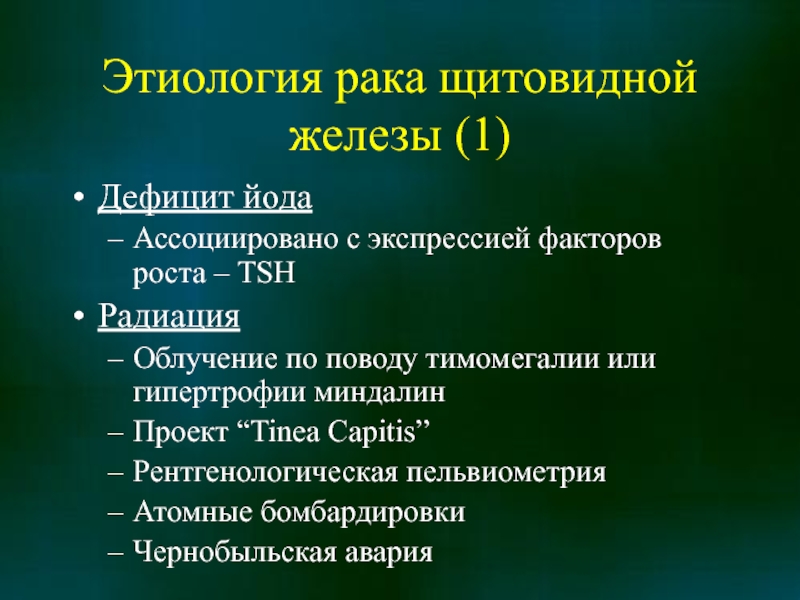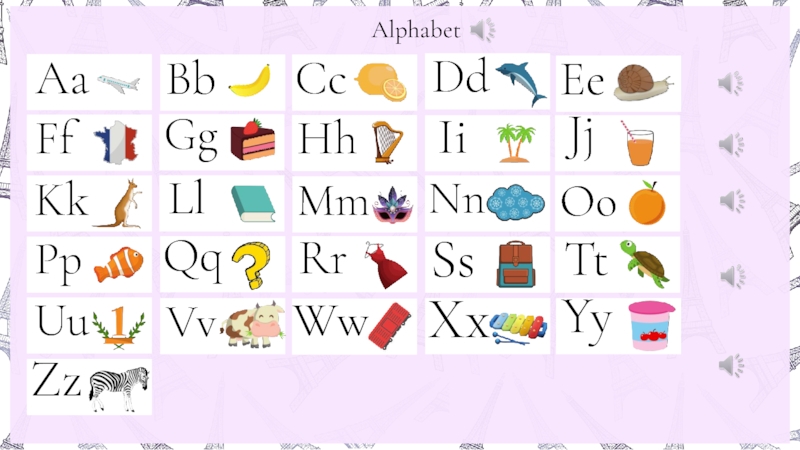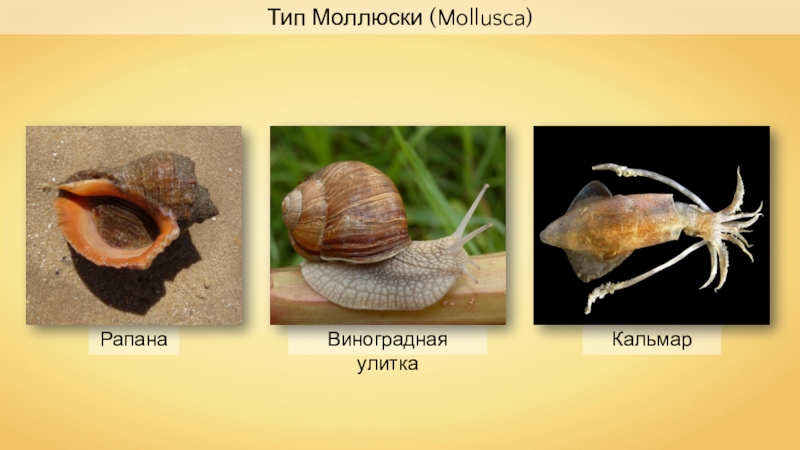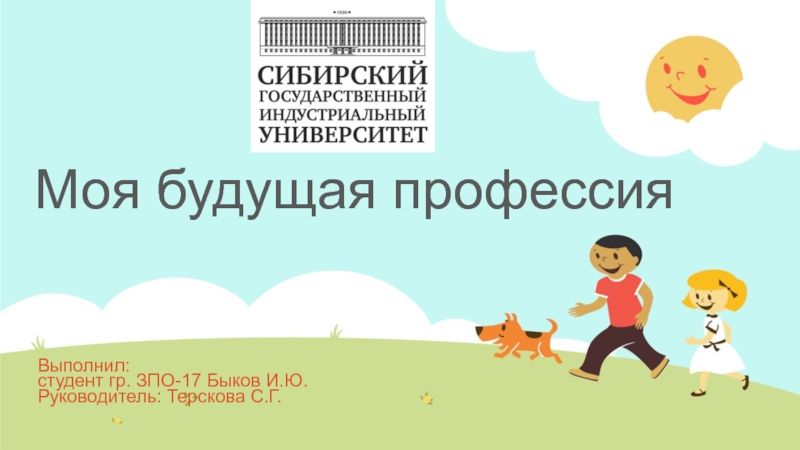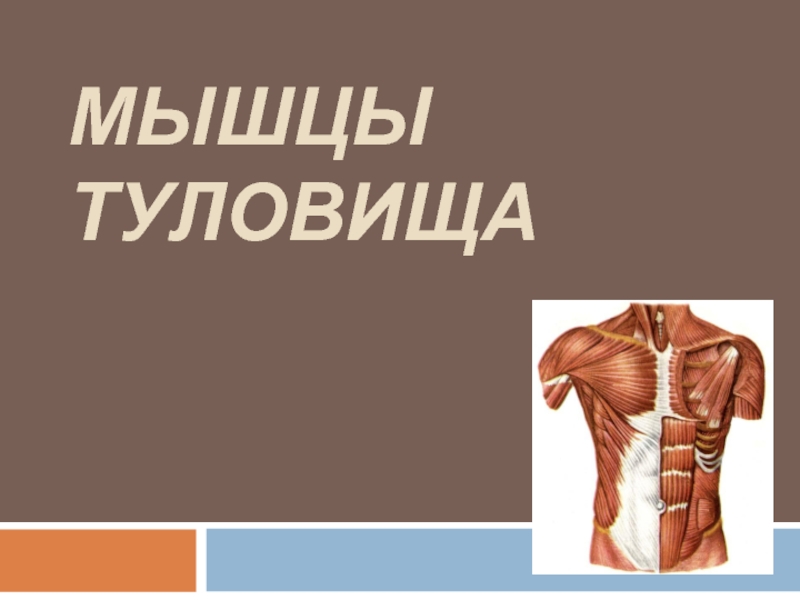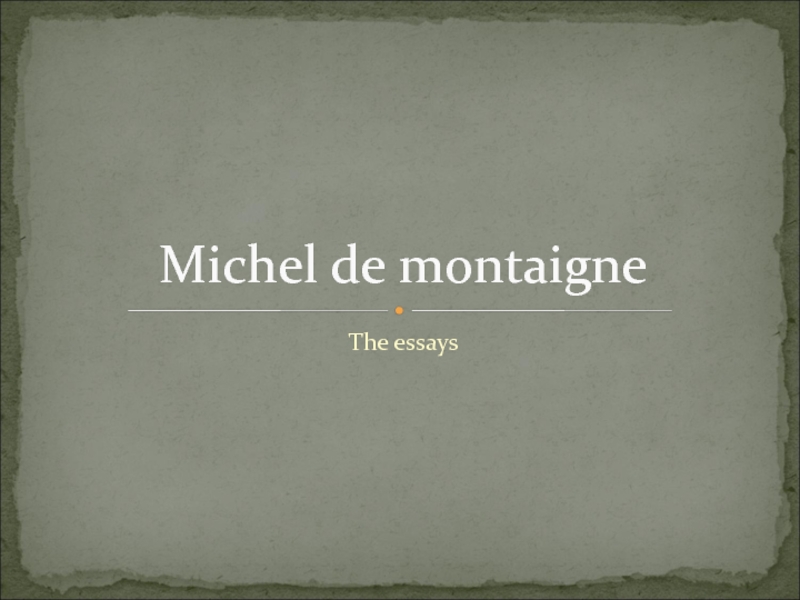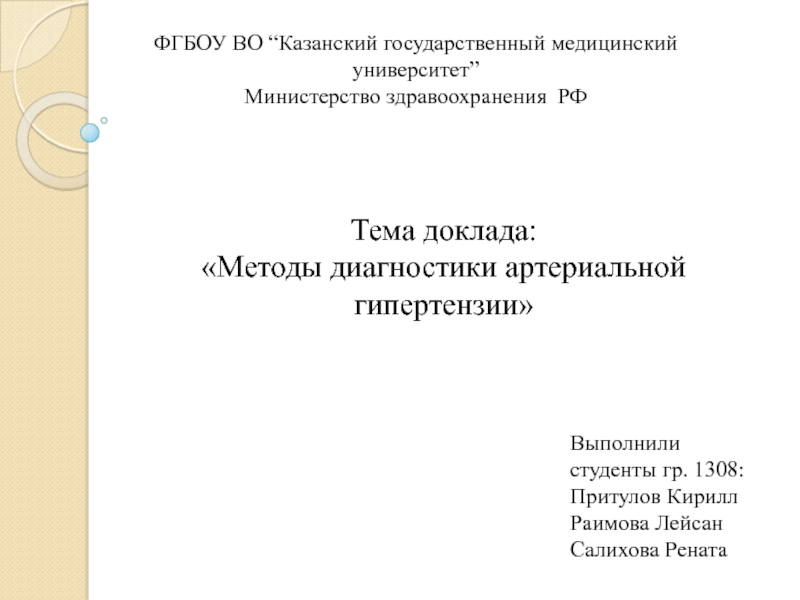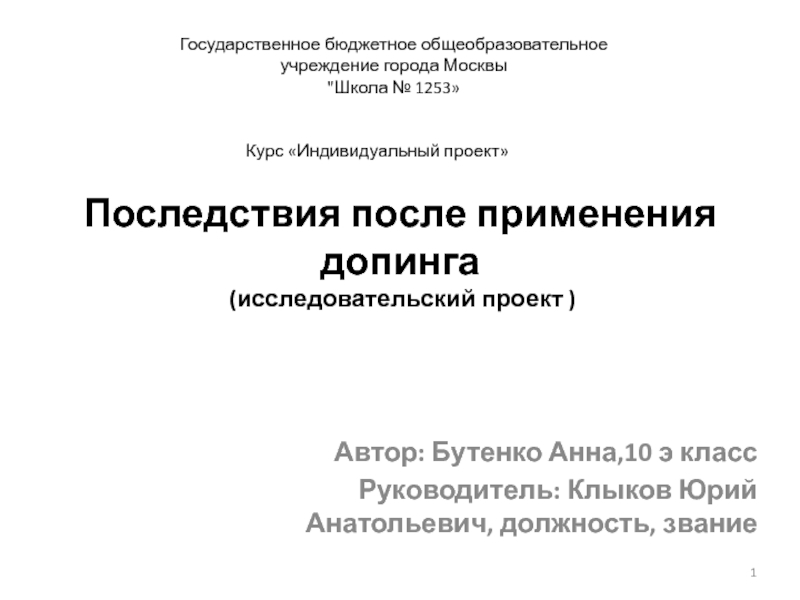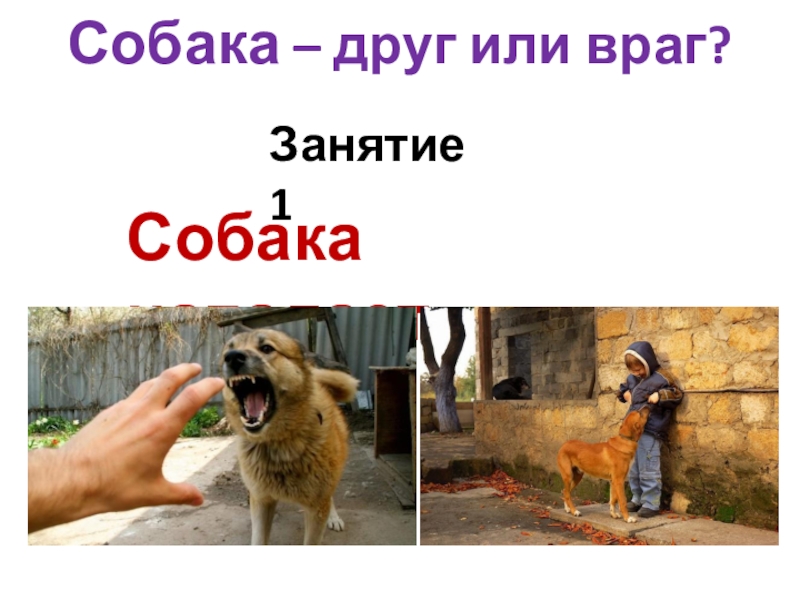Разделы презентаций
- Разное
- Английский язык
- Астрономия
- Алгебра
- Биология
- География
- Геометрия
- Детские презентации
- Информатика
- История
- Литература
- Математика
- Медицина
- Менеджмент
- Музыка
- МХК
- Немецкий язык
- ОБЖ
- Обществознание
- Окружающий мир
- Педагогика
- Русский язык
- Технология
- Физика
- Философия
- Химия
- Шаблоны, картинки для презентаций
- Экология
- Экономика
- Юриспруденция
L exicology as a branch of linguistics
Содержание
- 1. L exicology as a branch of linguistics
- 2. 1. Lexicology, its subject, subfields Lexicology -
- 3. Lexicology basic tasks a study and systematic
- 4. Lexicology subfields
- 5. 2. Lexicology and other linguistic disciplinesLINGUISTICSlexicologyphonetics morphology syntax semantics pragmatics stylistics sociolinguistics
- 6. 3. The history of the English lexiconThe
- 7. Periods in the development of English 1.
- 8. 4. The structure of the English present-day lexicon
- 9. At various times purists have tried to
- 10. Слайд 10
- 11. Common Indo-European words 1. Family relations: father,
- 12. Words of Common Germanic origin 1. Parts
- 13. English proper words have no cognates in
- 14. The Borrowed element of the English vocabulary
- 15. The sources of borrowings into the English
- 16. The main sources of borrowings into the
- 17. 3. Old French (also: Norman French)Administrative words:
- 18. The minor sources of borrowings into EnglishAlgebra Arabic Sofa PersianKetchup ChineseCaviar Turkish
- 19. Sauna FinnishBalcony Italian Sputnik RussianSwastika Sanskrit
- 20. Assimilation of borrowings Assimilation - transformation of a
- 21. Types of assimilation
- 22. 1. Phonetic assimilationChanges in sound-forms [ei] replaced
- 23. Changes in stress patternsin borrowed words, esp.
- 24. 2. Grammatical and morphological assimilationborrowed words usually
- 25. borrowed words preserve their original paradigms phenomenon
- 26. 3. Semantic assimilationwords are usually borrowed only
- 27. borrowed words can lose former meanings and
- 28. Degrees of assimilationcompletely assimilated partly assimilated non-assimilated
- 29. Completely assimilated borrowings include early Latin and
- 30. Partly assimilated borrowingspreserve some of their foreign
- 31. Non-assimilated borrowingspreserved their original spelling, pronunciation, and
- 32. Скачать презентанцию
1. Lexicology, its subject, subfields Lexicology - a branch of linguistics, the science of language or the study of words. ‘lexicology’ = ‘lexis‘ + ‘logos’
Слайды и текст этой презентации
Слайд 1Lexicology as a branch of linguistics
Lexicology, its subject, subfields
Lexicology and
other linguistic disciplines
of the English present-day lexiconСлайд 21. Lexicology, its subject, subfields
Lexicology - a branch of
linguistics, the science of language or the study of words.
‘lexicology’ = ‘lexis‘ + ‘logos’
Слайд 3Lexicology basic tasks
a study and systematic description of vocabulary
units in respect to their origin, development and current use
the
analysis of semantic relationships between words and the influence of various factors upon these relationshipsСлайд 52. Lexicology and other linguistic disciplines
LINGUISTICS
lexicology
phonetics
morphology
syntax
semantics
pragmatics
stylistics
sociolinguistics
Слайд 63. The history of the English lexicon
The origin and development
of the English language
Modern English = Celtic + Latin
+ German + Danish + FrenchСлайд 7Periods in the development of English
1. The first period:
The Old English (Anglo-Saxon) period - from the 5th to
the 11th century (600-1100)2. The second period: The Middle English (the Norman Conquest) period -from the 11th to the 15th century (1066-1500)
3. The third period: The Modern English period - from the 15th century to the present
Слайд 9 At various times purists have tried to purge the English
language of foreign words, replacing them with Anglo-Saxon ones. One
slogan created by these linguistic nationalists was:"Avoid Latin derivatives; use brief, terse Anglo-Saxon monosyllables".
Слайд 11Common Indo-European words
1. Family relations: father, mother
2. Parts of
the human body: foot, nose, lip, heart
3. Animals: cow, swine,
goose4. Plants: tree, birch, corn
5. Time of day: day, night
6. Heavenly bodies: sun, moon, star
7. Numerous adjectives: red, new, glad, sad
8. The numerals from one to a hundred
9. Pronouns: demonstrative, personal (except they which is a Scandinavian borrowing)
10. Numerous verbs: be, stand, sit, eat, know
Слайд 12Words of Common Germanic origin
1. Parts of the human
body: head, hand, arm, finger, bone
2. Animals: bear, fox, calf
3.
Plants: oak, fir, grass4. Natural phenomena: rain, frost
5. Seasons of the year: winter, spring, summer
6. Landscape features: sea, land
7. Human dwellings and furniture: house, room, bench
8. Sea-going vessels: boat, ship
9. Adjectives: green, blue, grey, white, small, thick, high, old, good
10. Verbs: see, hear, speak, tell, say, answer, make, give, drink
Слайд 13English proper words
have no cognates in other languages
Star:
Germ. Stern, Lat. stella, Gr. aster
formed after the 5th century
bird, boy, daisy, girl, lord, lady, woman, always
Слайд 14The Borrowed element of the English vocabulary
Ways of borrowing
Oral
borrowings
They are mostly root-words (monosyllabic)
They are completely assimilated
dinner, cat,
take, cup Written borrowings
They are words of two or more syllables
They usually preserve their spelling
Many of them are only partly assimilated
regime, valise, matinee, cafe, ballet
Слайд 15The sources of borrowings into the English lexicon
source of
borrowing - the language, from which a borrowed word was
takenmain minor
Слайд 16The main sources of borrowings into the English lexicon
1)
Greek (the classical element) usually through Latin or French:
Helen,
idiom, comma, colon, synonym, also scientific and technical terms. 2) Latin (the classical element)
cherry (Lat. cerasum), pear (Lat. pirum), cup (Lat. cuppa), kitchen (Lat. coquina), wine (Lat. vinum)
Слайд 173. Old French (also: Norman French)
Administrative words: state, government, parliament
Legal
terms: court, judge, justice, crime, prison
Military terms: army, war, soldier,
officer, battle, enemyEducational terms: pupil, lesson, library, science, pen
Everyday life: table, plate, dinner, autumn, uncle
4. Scandinavian (also: Old Norwegian)
call, take, law, husband, window, low, weak, they
Scandinavian borrowings with the initial sk- combination: sky, skill, skin, ski, skirt
Слайд 18The minor sources of borrowings into English
Algebra
Arabic
Sofa
Persian
Ketchup
Chinese
Caviar
Turkish
Слайд 20Assimilation of borrowings
Assimilation - transformation of a word according to
the norms of the adopting language
includes changes in their sound-form,
spelling, morphological and grammatical paradigms, and in their meaningthe older the word is, and the more frequently it is used in speech, the more assimilated this word becomes.
Слайд 221. Phonetic assimilation
Changes in sound-forms
[ei] replaced French [e] in
cafe ['kafei]
the pronunciation of the combinations [ks], [pn], [ps] in
Greek words was simplified:pneumonia [nju'mounia]
pseudonym ['sju:denim]
psychology [sai'koladji]
Слайд 23Changes in stress patterns
in borrowed words, esp. Latin and French,
the stress was gradually transferred to the first syllable
unassimilated
assimilatedpronunciation pronunciation
Ballet [bæ ' lei] [' bælei]
Слайд 242. Grammatical and morphological assimilation
borrowed words usually lose their former
grammatical categories and change their morphological structure and paradigm
«спутник»: sputnik,
sputniks, sputnik's, sputniks'. Слайд 25borrowed words preserve their original paradigms
phenomenon (sing.) - phenomena
(pl.) Gk
formula (sing.) - formulae (pl.) L.
borrowed words have two
paradigms: the native and the foreign stadium – stadia - foreign paradigm
stadium – stadiums - native paradigm
Слайд 263. Semantic assimilation
words are usually borrowed only in one or
two meanings
Спутник:
1. Тот, кто совершает путь вместе с кем-н
2. То,
что сопутствует чему-н., появляется вместе с чем-н.3. Небесное тело, обращающееся вокруг планеты
4. Космический аппарат, запускаемый на околопланетную, окололунную или гелиоцентрическую орбиту с помощью ракетных устройств.
Sputnik:
1. Each of a series of Soviet artificial satellites
Слайд 27borrowed words can lose former meanings and acquire new ones
Movoir
(Old French) mouvoir (Modern French)
to move (Modern English)Mouvoir:
1) двигать; приводить в движение
2) пробуждать
To move (16 meanings):
1) to change one's dwelling
2) to suggest (a proposal) formally
3) to be exciting or active, etc
Слайд 29Completely assimilated borrowings
include early Latin and early French borrowings
and words borrowed from Scandinavian throughout the 8th -12th centuries
have
the same features as the native wordspriest (Lat. presbyter), bishop (Lat. episcopus), monk (Lat. monachus), nun (Lat. nonna), candle (Lat. candela)
Слайд 30Partly assimilated borrowings
preserve some of their foreign features (mostly in
pronunciation)
French English
valise [və' li:z]
regime [rei ' im]
Слайд 31Non-assimilated borrowings
preserved their original spelling, pronunciation, and meaning without any
changes
«de facto» (L.)
in point of fact
де-факто, фактически, в реальности,
на самом деле«bon mot» (Fr.)
a witty saying
остроумное выражение, острота
«repartee» (Fr.)
a witty reply
остроумный ответ
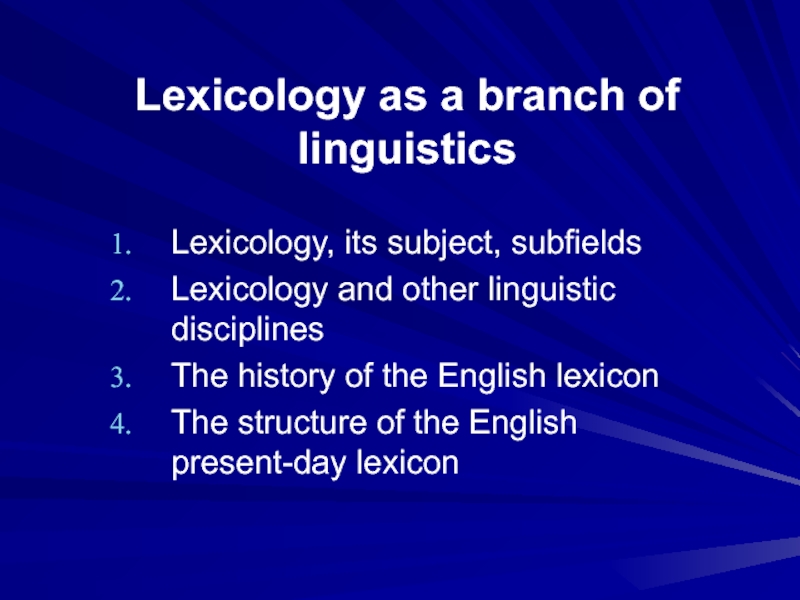
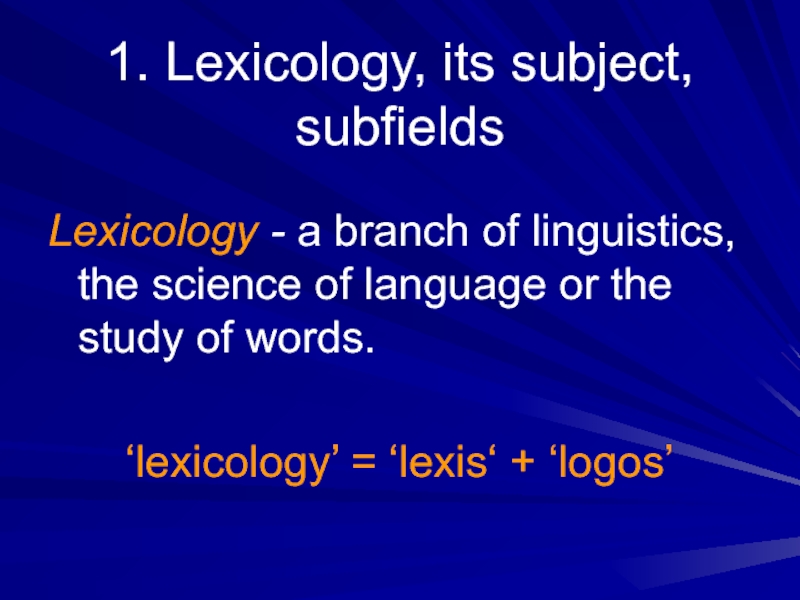
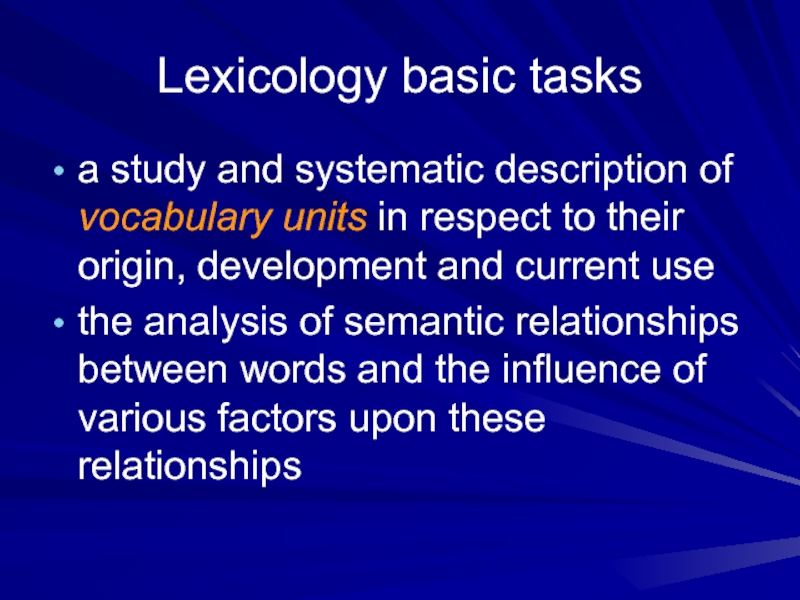
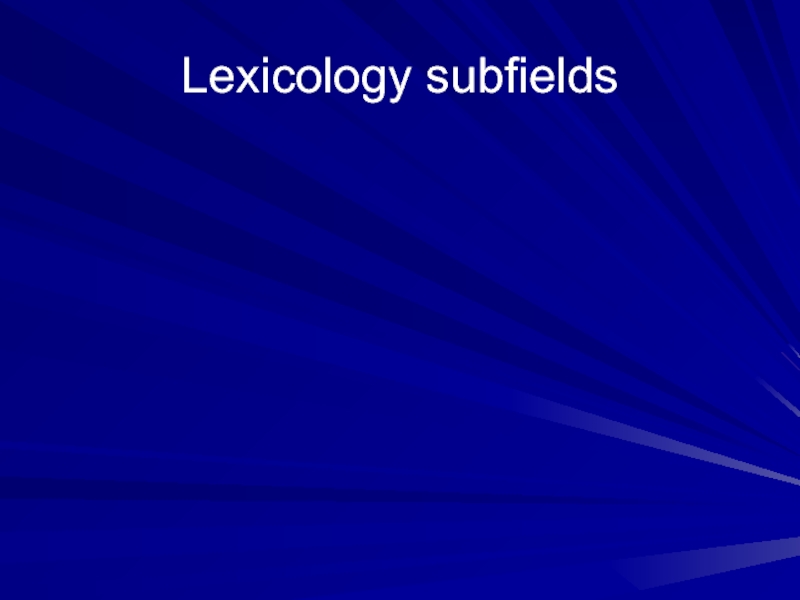
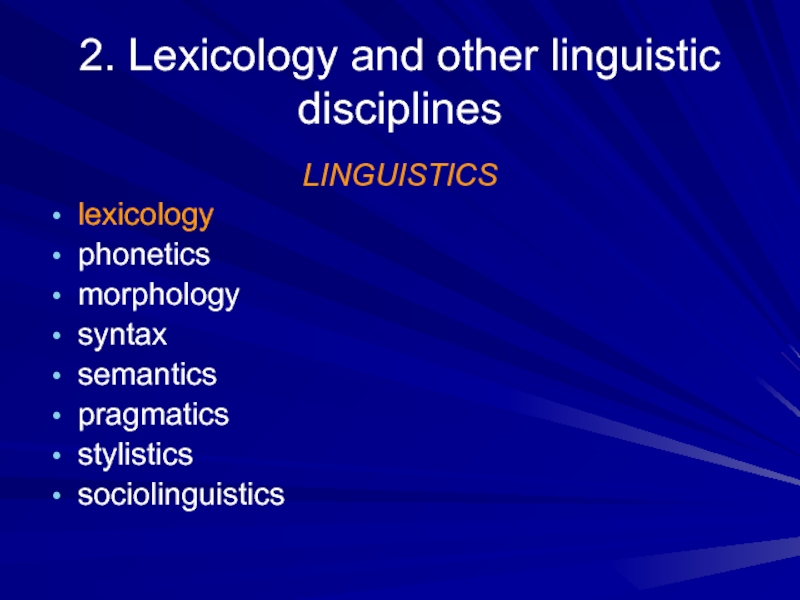
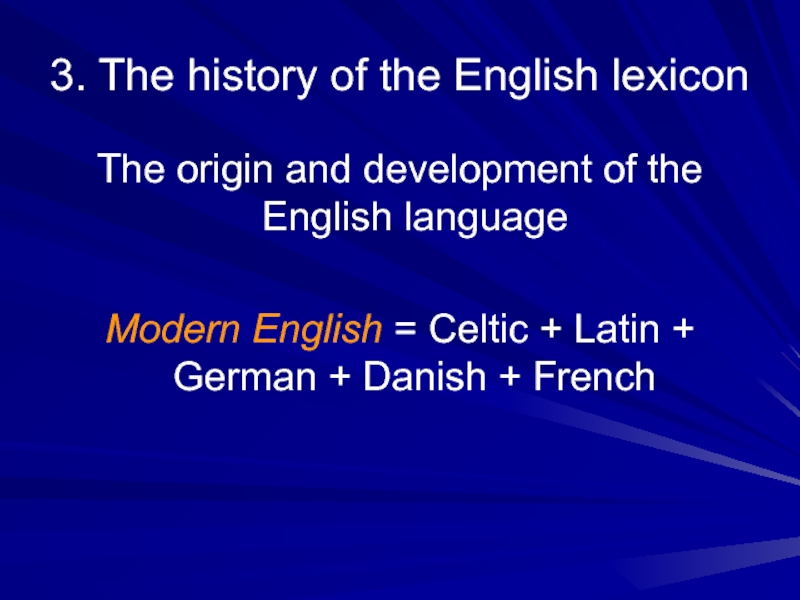
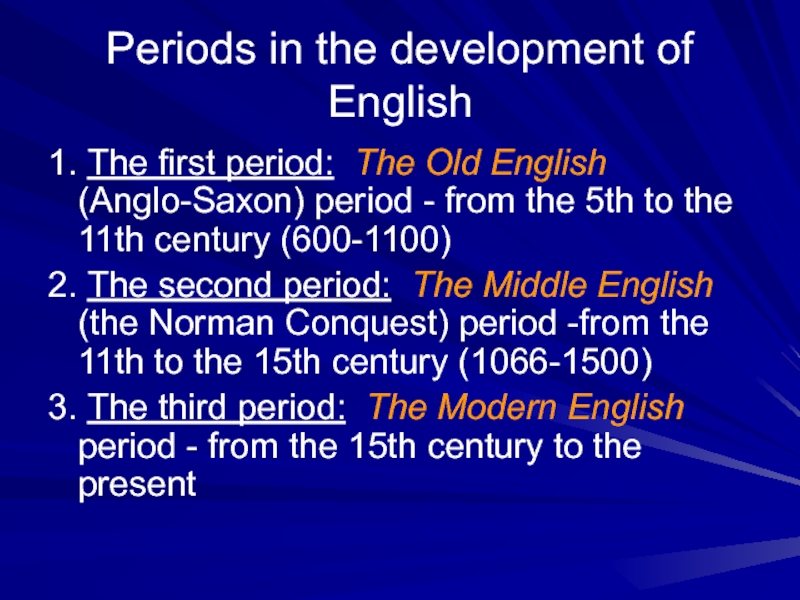
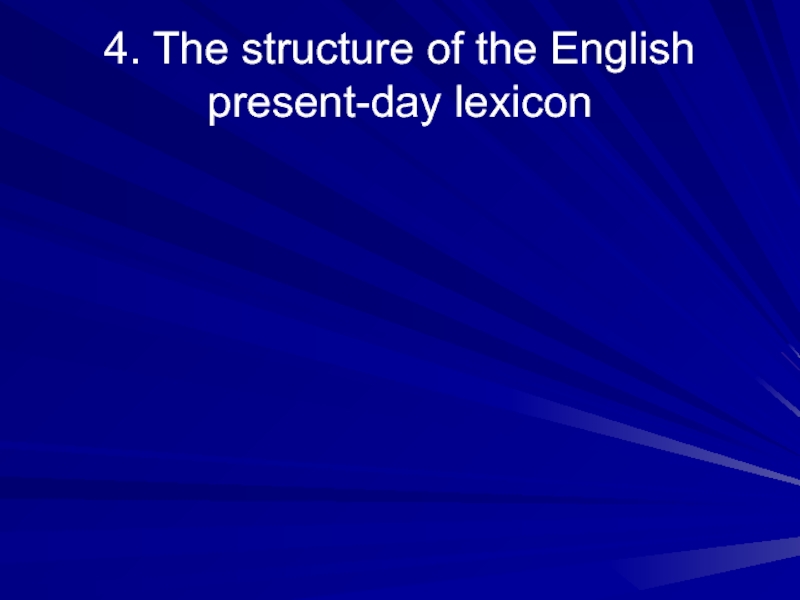


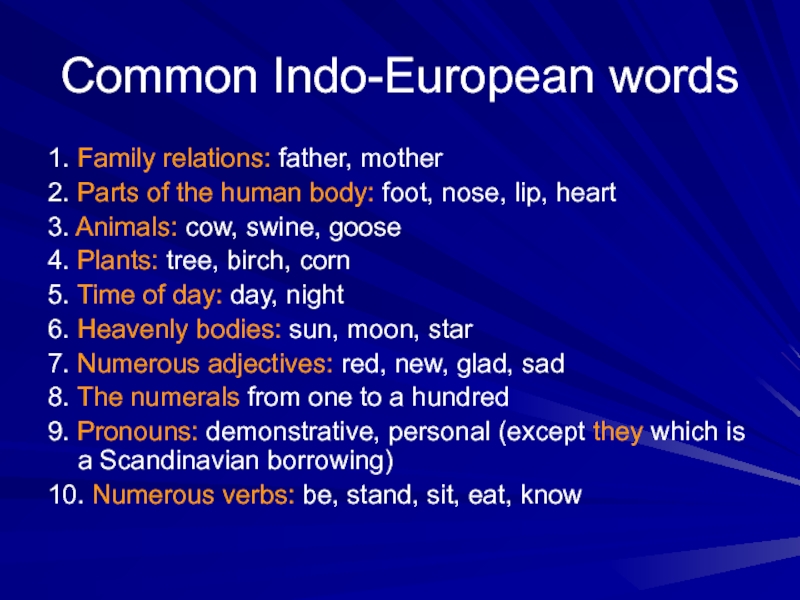
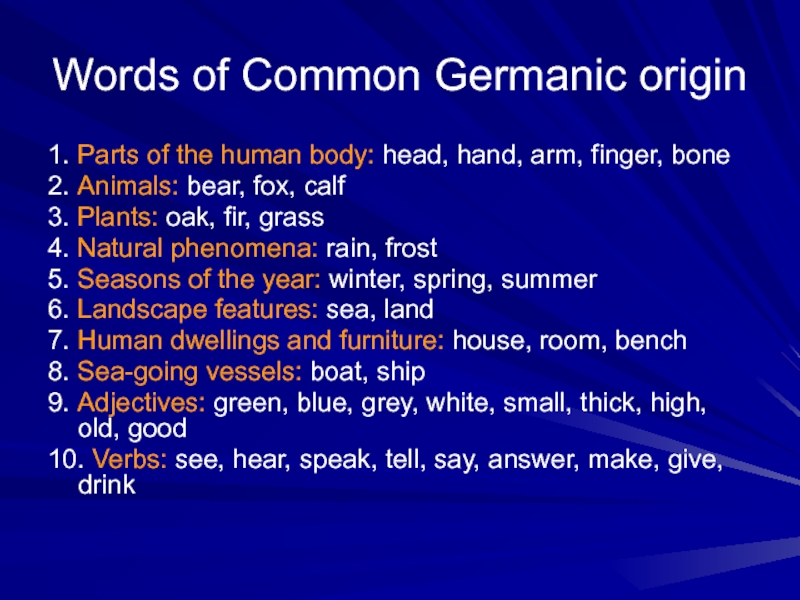
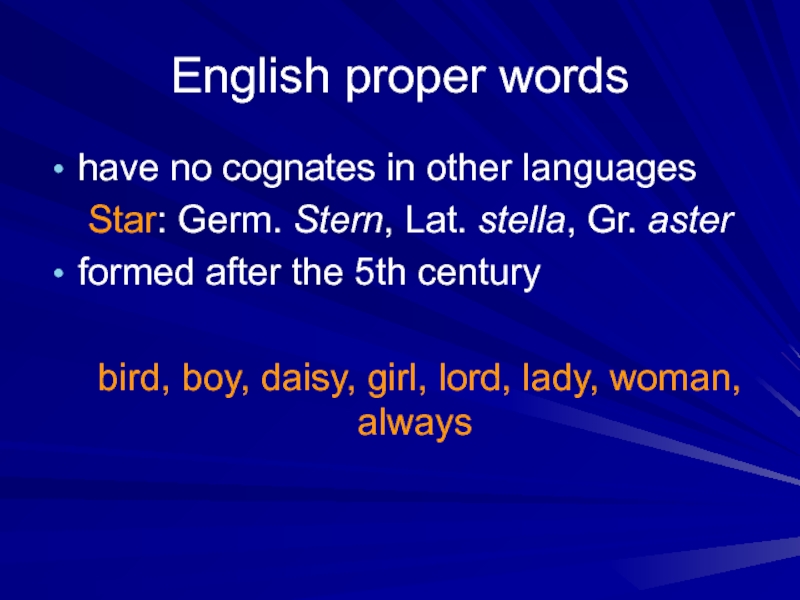
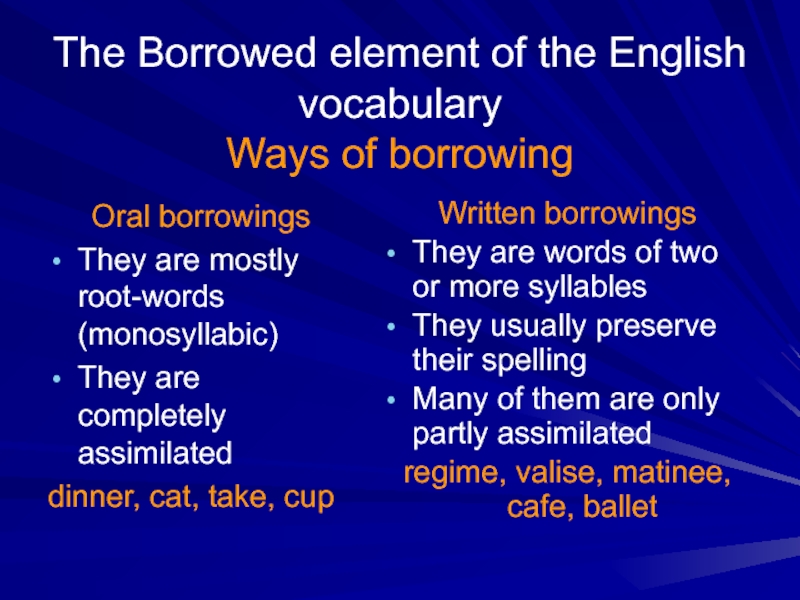
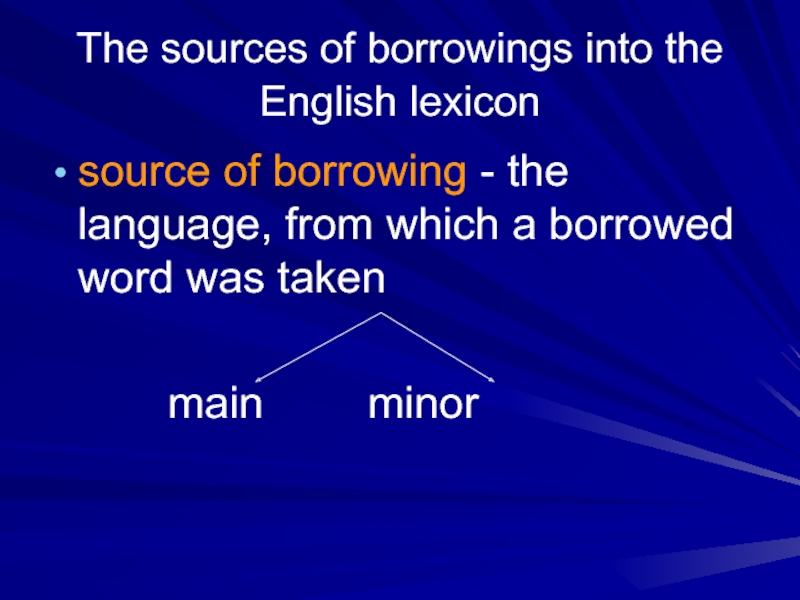
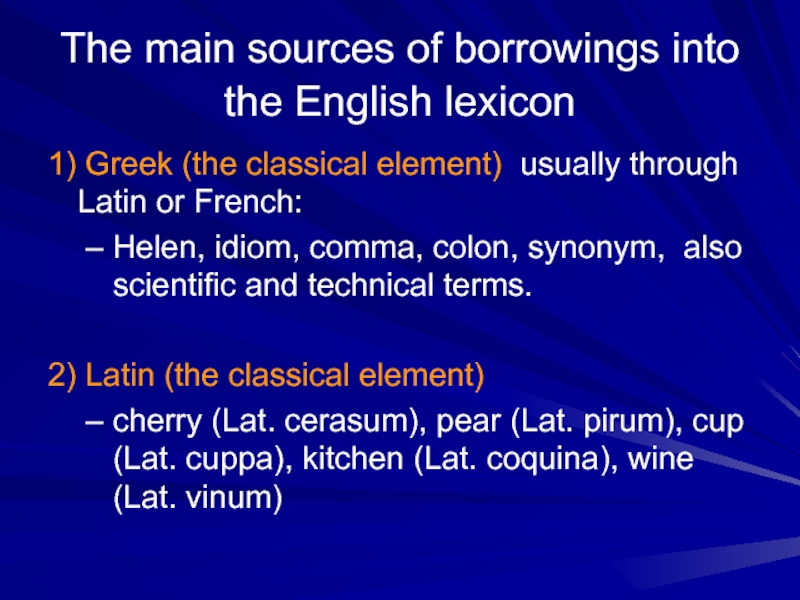
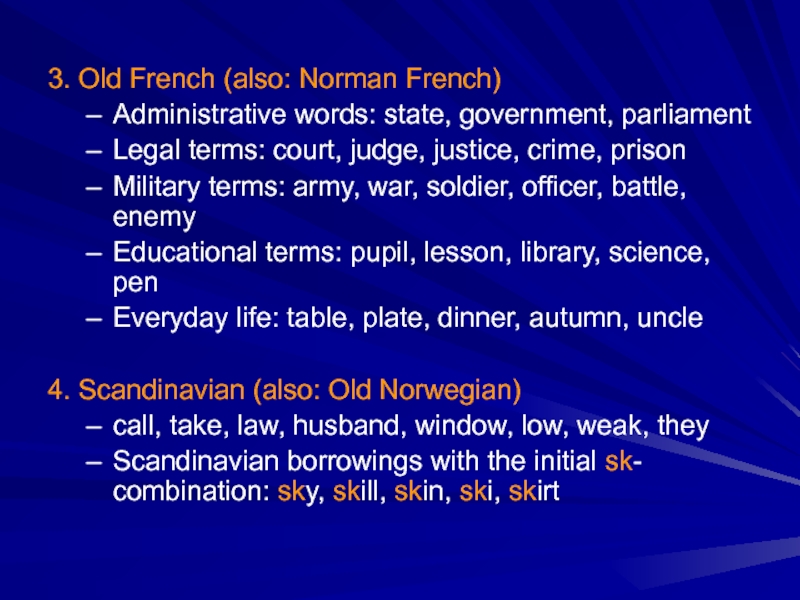
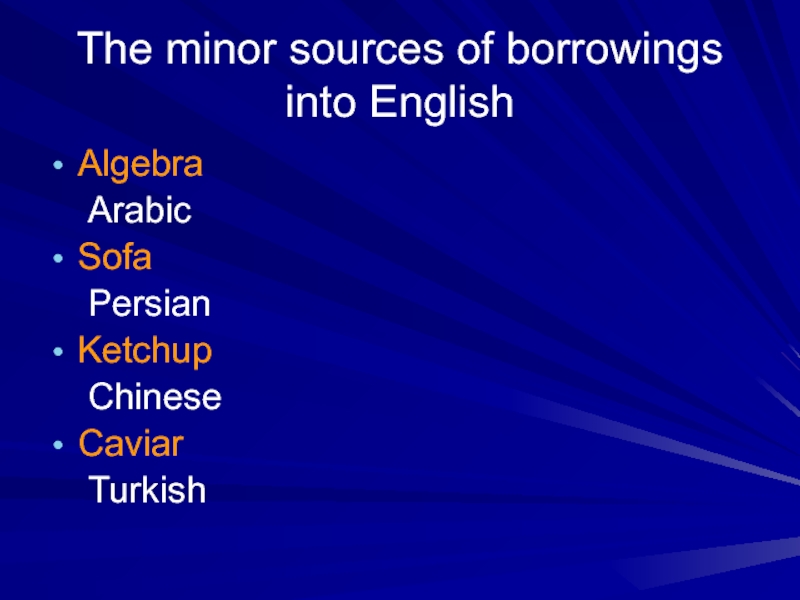
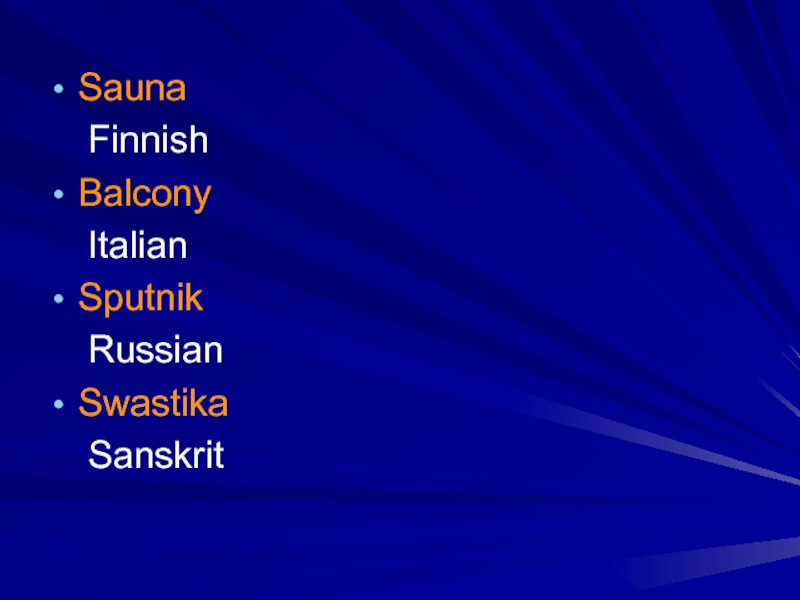
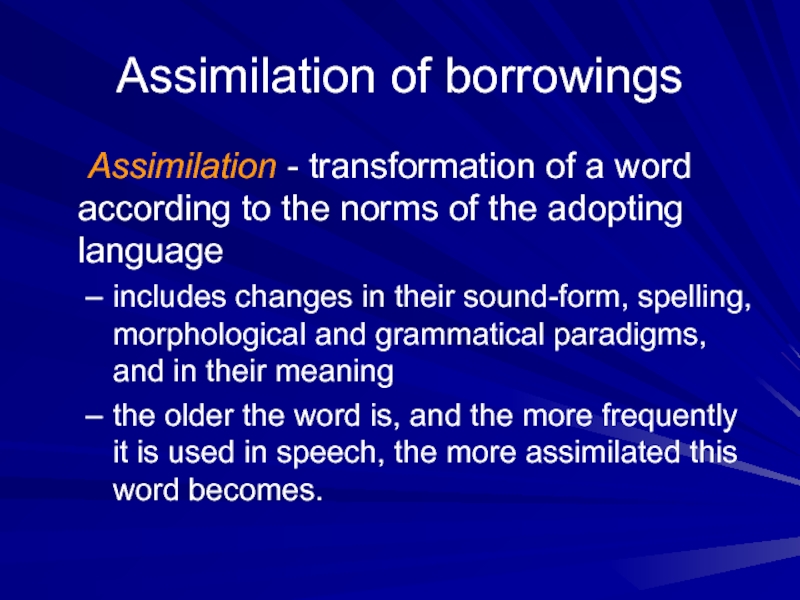
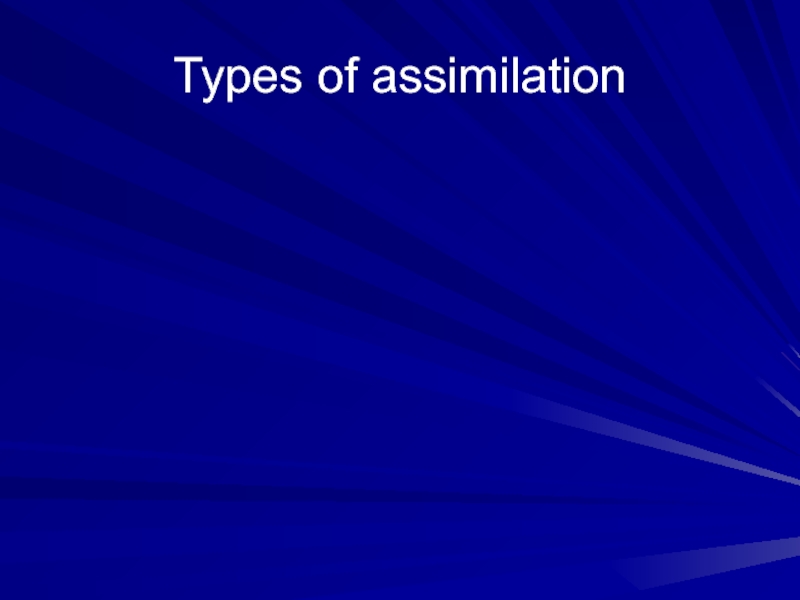
![L exicology as a branch of linguistics 1. Phonetic assimilationChanges in sound-forms [ei] replaced French [e] in cafe 1. Phonetic assimilationChanges in sound-forms [ei] replaced French [e] in cafe ['kafei]the pronunciation of the combinations [ks],](/img/thumbs/1bed49db0b159aa926612bd2d8474d19-800x.jpg)
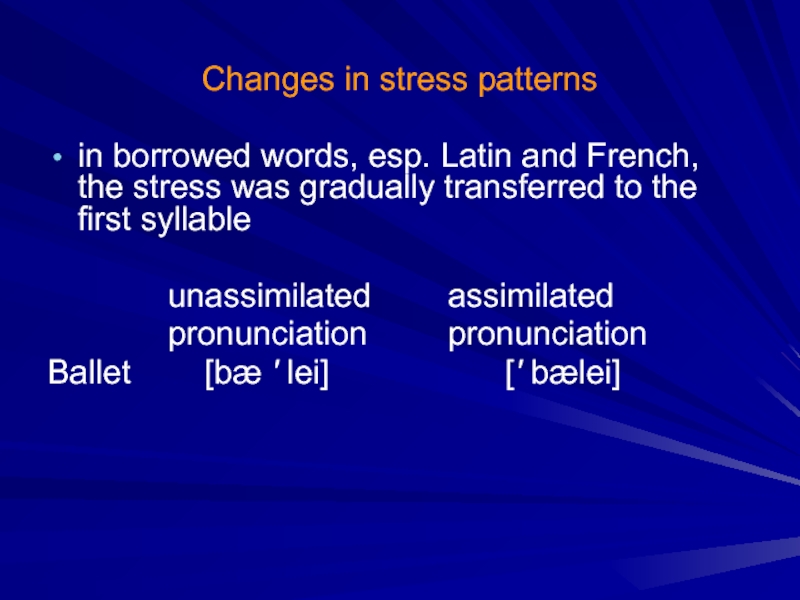
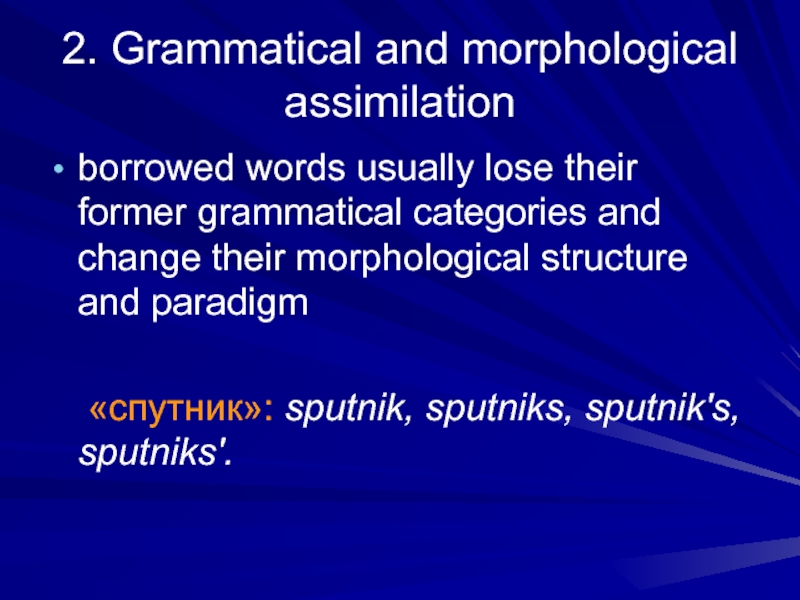
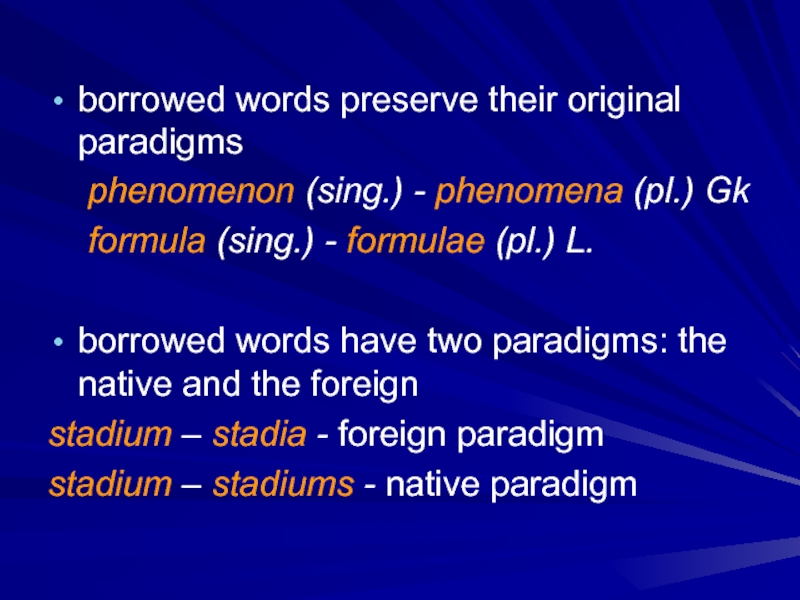
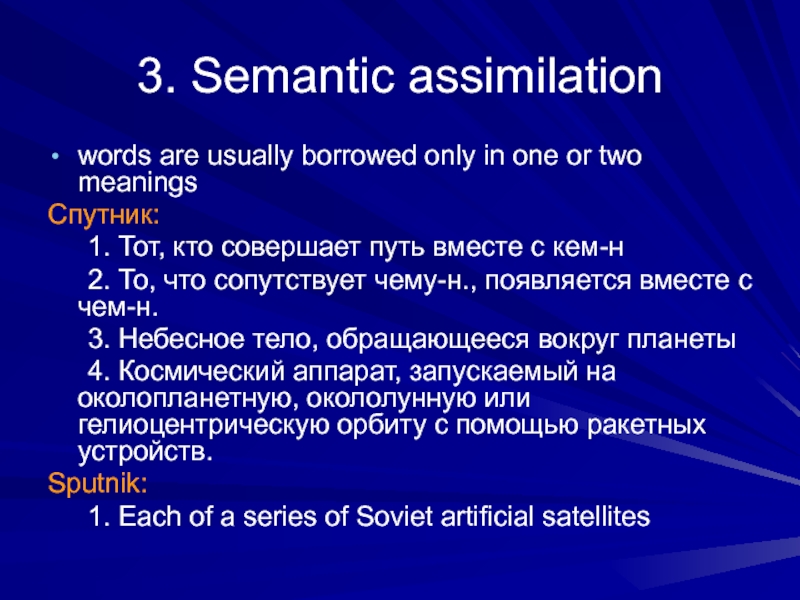

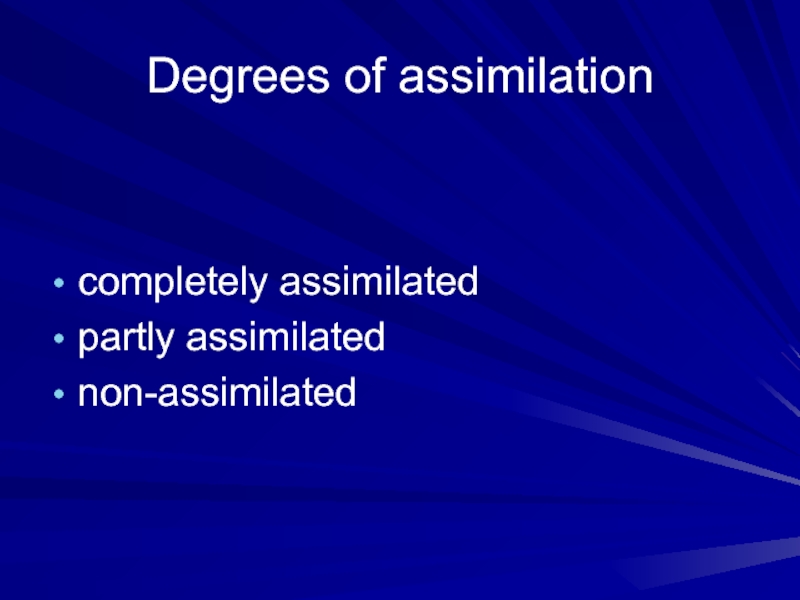
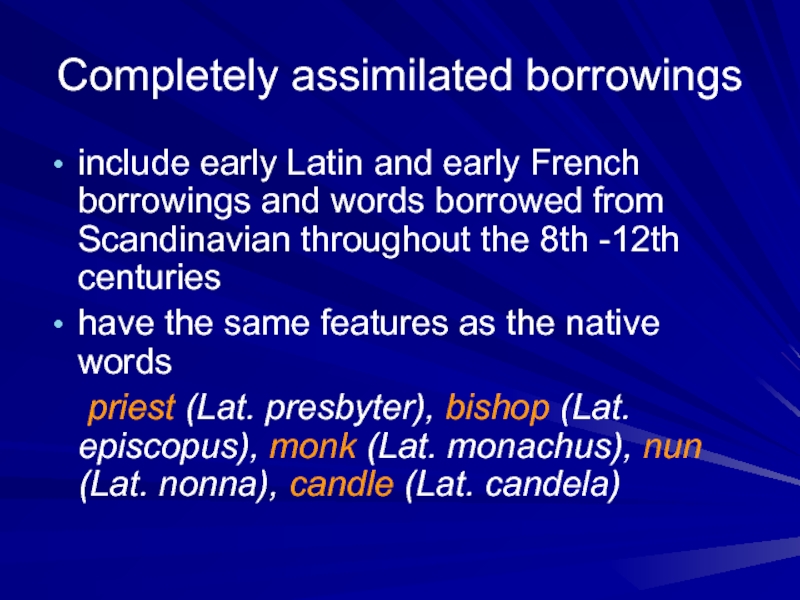
![L exicology as a branch of linguistics Partly assimilated borrowingspreserve some of their foreign features (mostly in pronunciation) French Partly assimilated borrowingspreserve some of their foreign features (mostly in pronunciation) French Englishvalise [və' li:z]regime [rei '](/img/thumbs/5c2fdb29eb5132a879558c21b02aa57b-800x.jpg)
